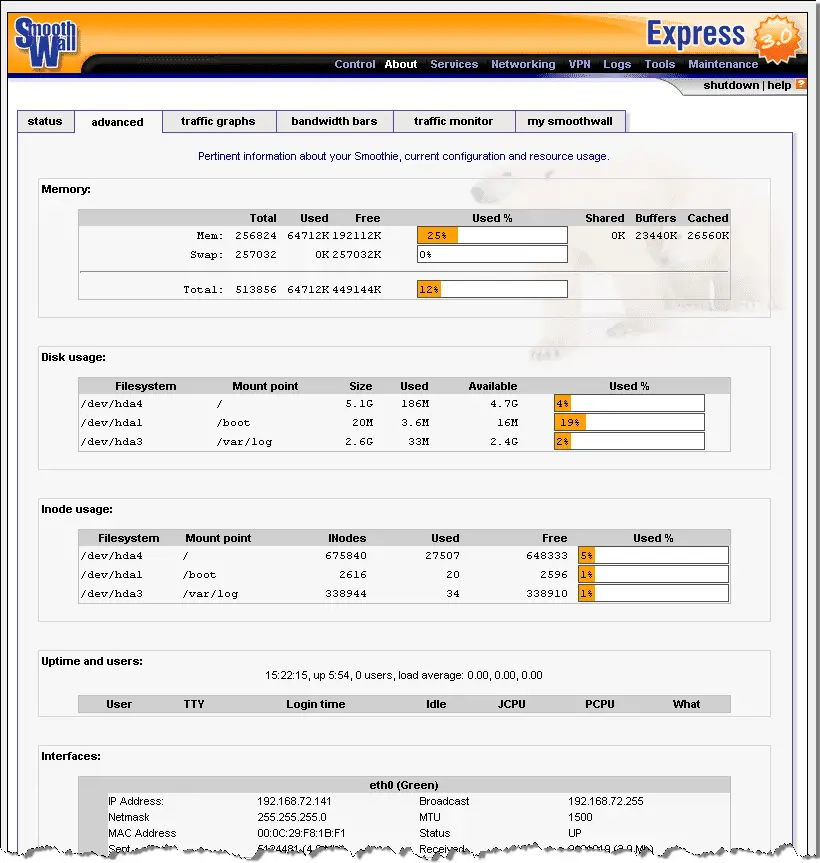
The Smoothwall Open Source Project was set up in 2000 to develop and maintain Smoothwall Express – a Free firewall that includes its own security-hardened GNU/Linux operating system and an easy-to-use web interface.
The Smoothwall GPL project was founded in the summer of 2000 by Lawrence Manning (Principle Code Author) and Richard Morrell (Project Manager). Their goal was to create a Linux distribution that could convert a redundant PC into a hardened internet firewall device. With help from other early contributors; Jon Fautley and Tom Ellis, the first Smoothwall Firewall was posted to sourceforge.net at the end of August 2000.
The project was immediately popular and grew rapidly. Within weeks, thousands of copies had been downloaded and Smoothwall was appearing regularly on magazine cover CDs in the UK and overseas. Many more developers joined the team and new versions were released almost weekly, incorporating new features based on software contributions from all around the world.

Over the years, the project team has changed and the Smoothwall community has grown to include almost 17,000 forum members.
The goals of the project can be summed up as:
- Be simple enough to be installed by home users with no knowledge of Linux
- Support a wide variety of network cards, modems, and other hardware
- Work with many different connection methods and ISPs from across the world
- Manage and configure the software using a web browser
- Run efficiently on older, cheaper hardware
- Develop a supportive user community
- Use sponsorship from Smoothwall Limited to further these goals
Smoothwall Express 3.1 released.
Changelog:
- The build system is vastly improved. It is now re-entrant (a build will continue where it left off when an error is encountered and fixed), and compiles will use all CPU cores present). It should produce correct i586 or x86_64 code for all packages.
- Grub Legacy is now used to boot all drives: ISO images, flash installers, and the installed target.
- SMP is standard for 32- and 64-bit installations. Smoothwall Express will now use those extra CPU cores.
- Installation on KVM, Xen, VMWare, Hyper-V and other virtual systems is supported. Operation on KVM was used extensively during development; operation on other hypervisor systems is known to work but hasn’t been tested as thoroughly. Virtio disk and network devices are supported; they work well with KVM.
- The kernel now provides /dev entries for all devices it knows about; udev handles the rest.
- The latest firmware blob from kernel.org has been included to make more hardware usable with Smoothwall Express.
- The collection of manufacturer drivers for NICs and NADs has been moved into a separate package to make it easier to provide updates.
- More…